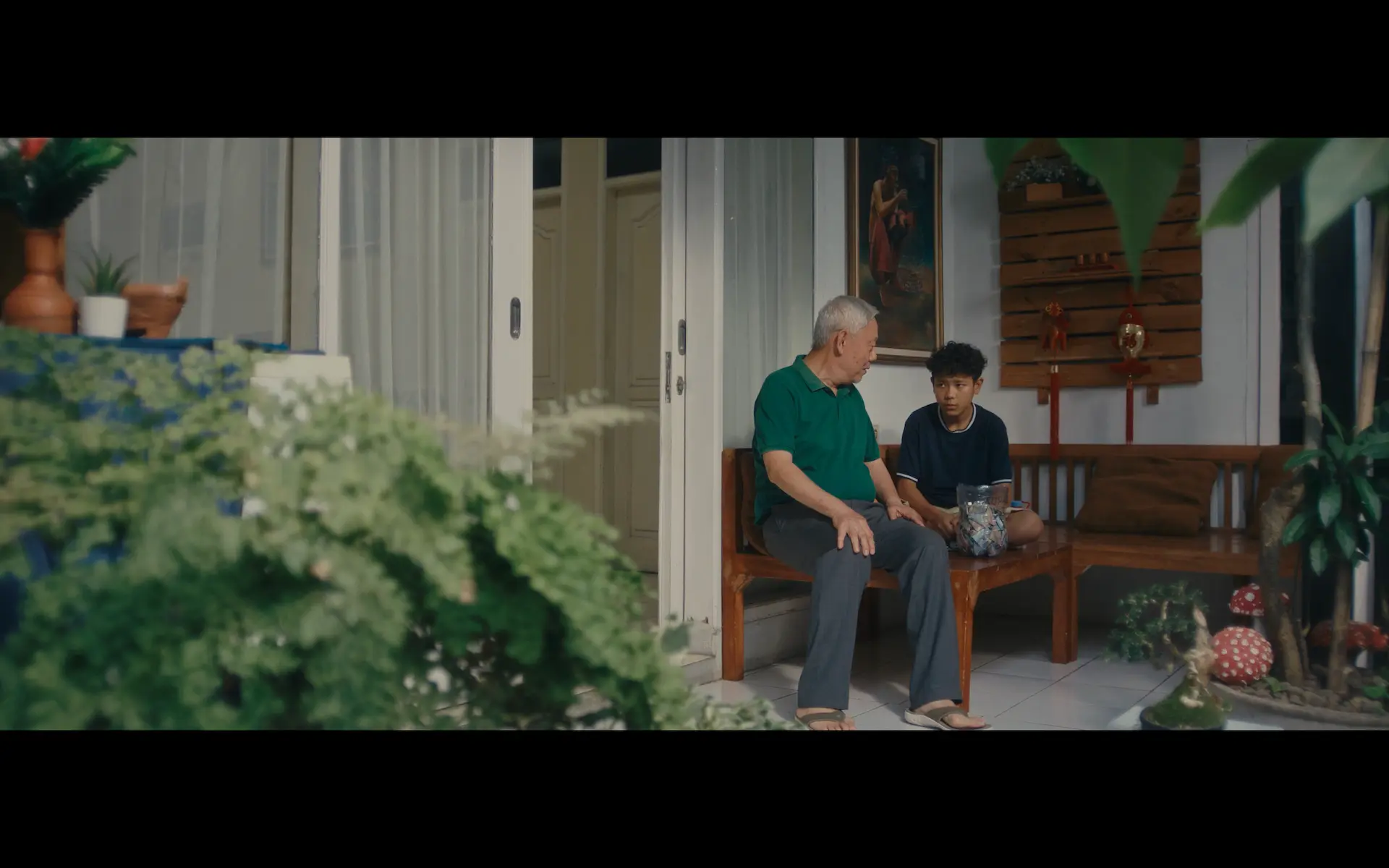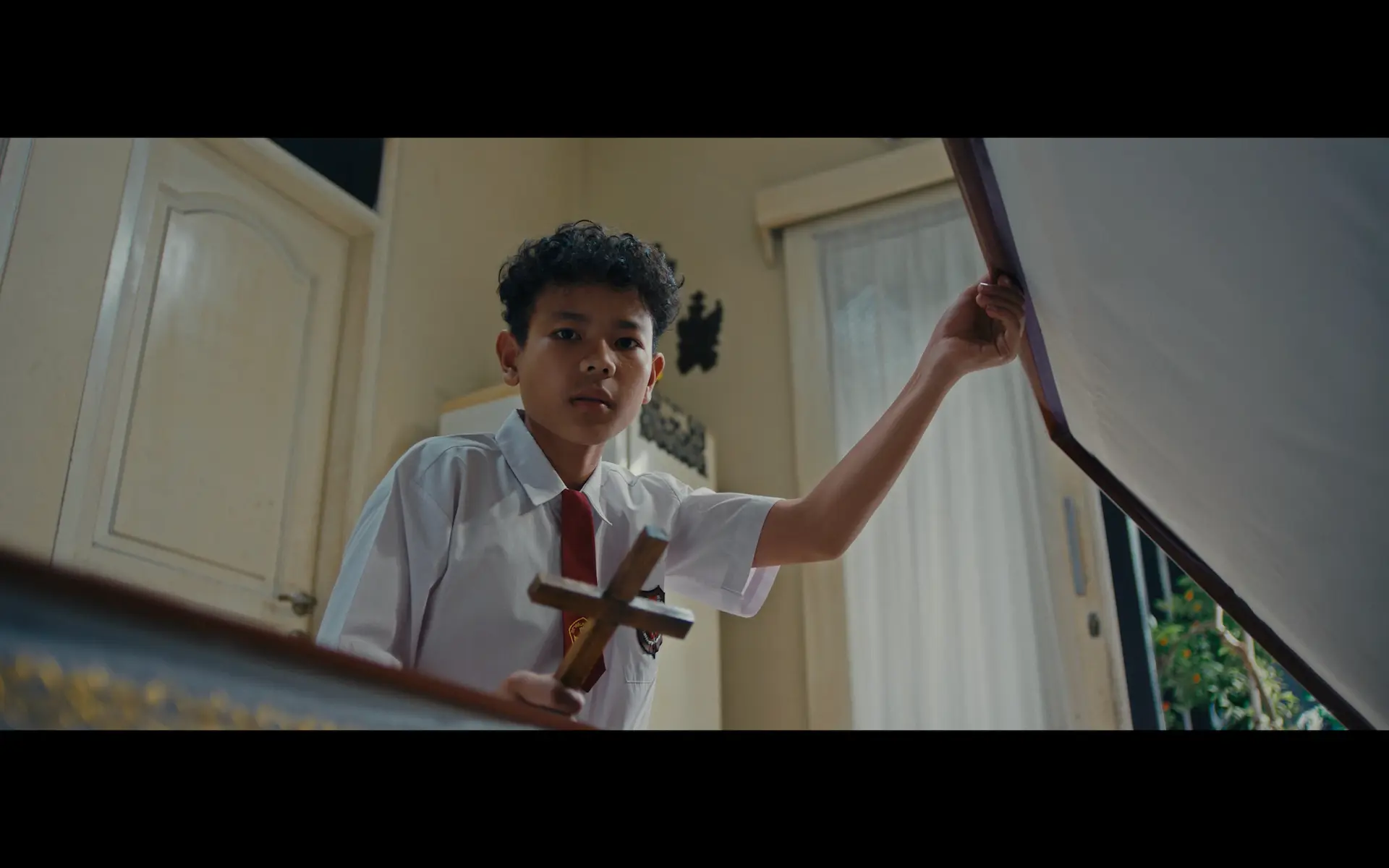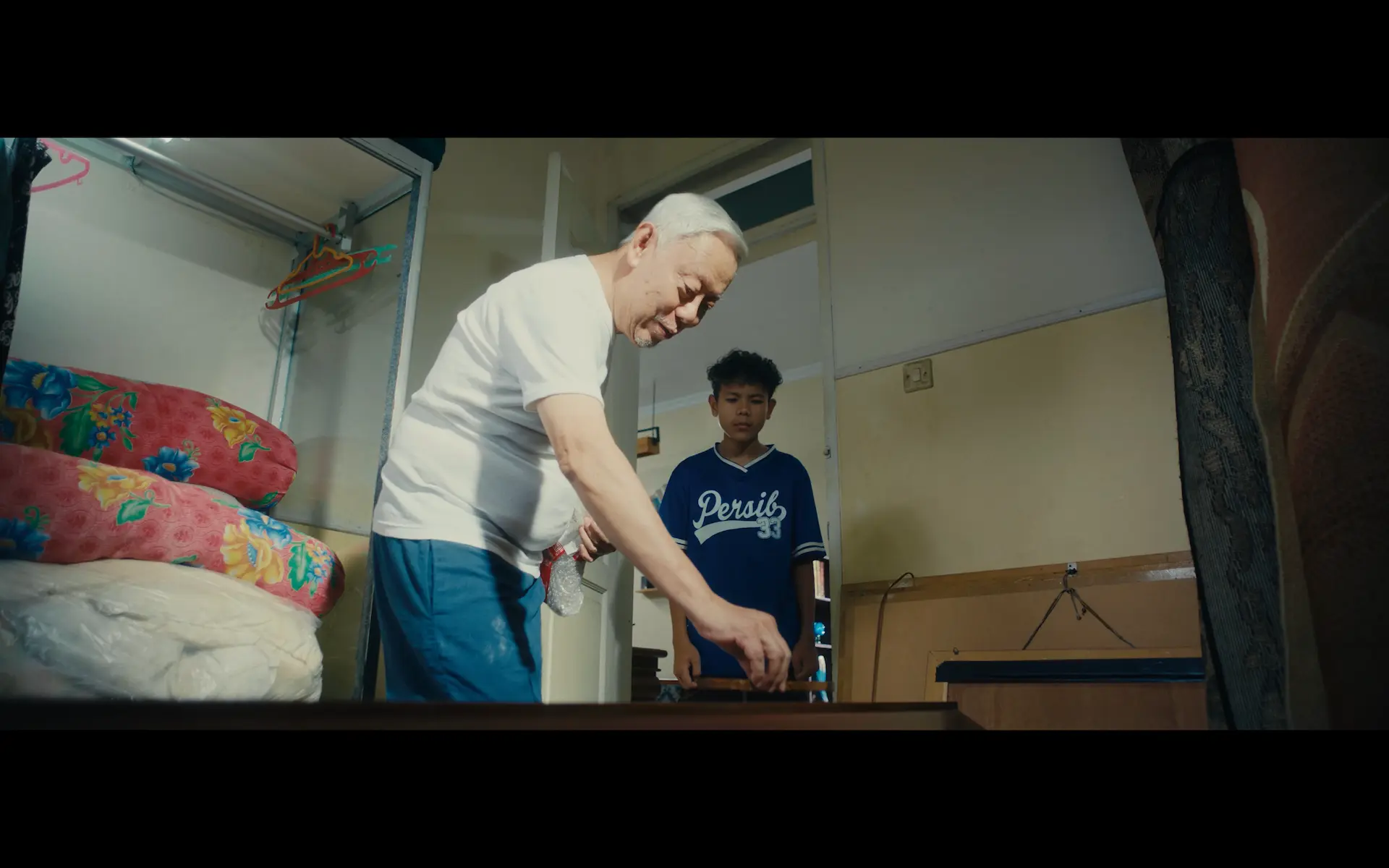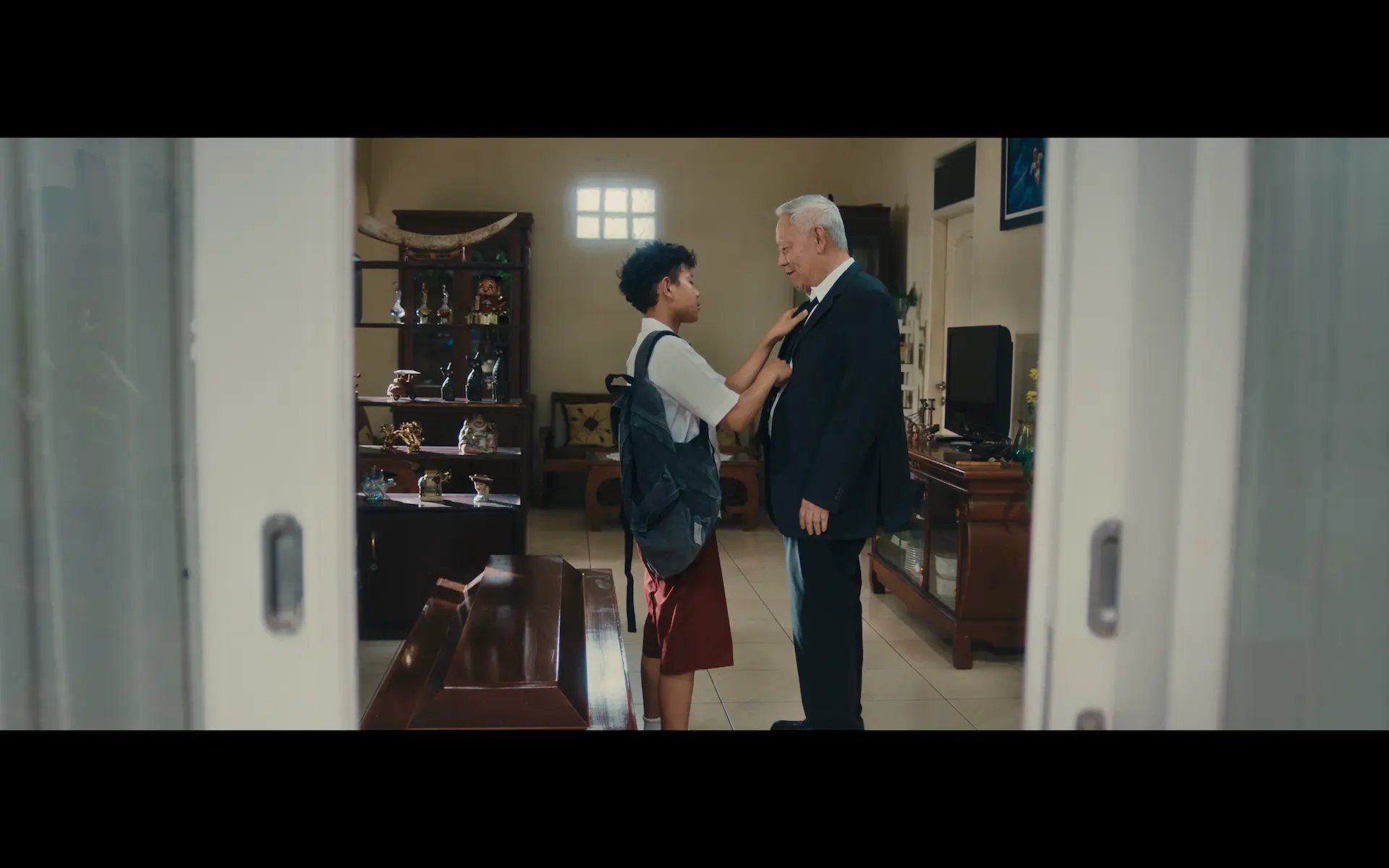The film captures a powerful emotional bond across generations. With its depiction of a pressing issue that resonates strongly with today’s reality, the story reflects situations many of us may find ourselves in torn, like Umar, between honesty and pragmatism. The director makes it clear that the audience is meant to feel Umar’s moral dilemma.
For some, thinking pragmatically and focusing on practical solutions seems like the right approach in today’s world. Yet in this film, that burden is placed on Umar, a child who, in truth, is not yet ready to shoulder such choices. The cost of this premature pragmatism is his honesty.
Liong, portrayed as a sympathetic guide, embodies kindness without imposing or dictating. His deep understanding of Umar’s character makes him a worthy mentor, offering many lessons through his example.
Director Roberto Rosendy appears intent on portraying a genuine reality: that pragmatic thinking has begun to seep into the lives of children who are too young for it. This becomes problematic when younger generations, who should be learning from their elders, instead see moral sacrifices being made and begin to replicate them.
This is not a commentary on parenting alone it is a critique of the normalization of pragmatism in contemporary life. The Writer hopes for more figures like Liong: mentors who are ready to guide and instill honesty, so that others are not left to suffer from its absence.
Umar’s mother nearly suffered a great loss not only the money Umar attempted to use but also the honesty of her own child. Perhaps we all recognize that the deepest wound a mother can feel is not financial loss, but the erosion of the values within her child.
May the generations to come not be poisoned by premature pragmatism. As the proverb reminds us: endure hardship first, and only then enjoy the reward.
By Satya Din Muhammad
Editor Majesti Anisa
Translator Debytha Nela M. V.






Comments • 0
Write your comment
Comments • 0